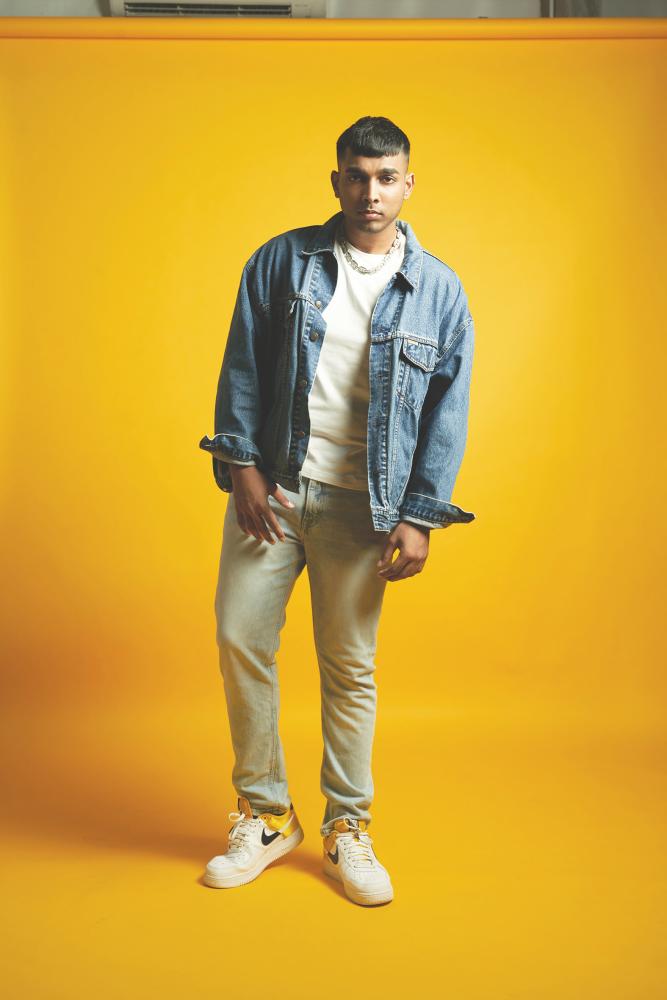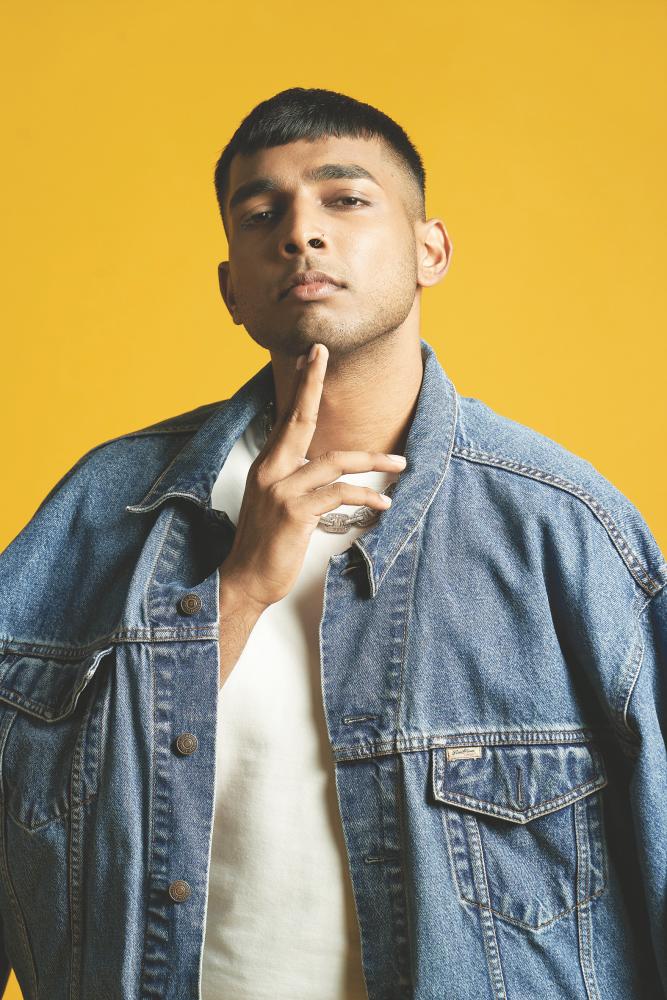Back when he first began beatboxing at the age of nine, 24-year-old Parssanth Navaratnam was still finding his footing in the music scene.
“I used to perform beatboxing a lot. It was a really fun experience, beatboxing, because there was where I discovered the sound, the bounce of my music. I was later part of a group called BeatNation.
“That was an absolutely mindblowing experience. I got to hang out with other people who had the same interest I had at that point in time,” said Parssanth, who now goes by the stagename Kidd Santhe.
“I met DJ Biggie very early in my life. He was my mentor, and now we have a label together called Monster Sound.”
Kidd, now a rapper quickly rising through the local echelons, graced theSun with an interview.
How did you start the SoundCloud journey?
“I used to be a very shy person overall. I didn’t know whether my music was great. I used to upload little songs and made beats. I was sharing it privately because I didn’t want anybody to listen to it, because I didn’t know whether I was confident enough.
“SoundCloud was the start of things for me.”
What has been the “Damn! I made it!” moment or realisation of your career thus far?
“There are two answers to that question. First being, I don’t think I’ll ever reach a point of success saying: ‘Hey, I made it!’ The second part to that is, if you’re asking me at what point did I realise this was my career.
“I think it would have been a year-and-a-half ago, when I realised I did not have to get a day job. I didn’t have to think about ever going back to college. This was before HAA TEPOK was released.
“It’s not about the number of fans or how many people follow me. It’s about what I’ve done and whether I’m paving the way for kids out there who don’t have the resources to make it.
“My success comes from one thing and one thing only. It comes from how I work with what I have. Like back then, years ago, I used to record songs in my mum’s cupboard. I didn’t know if that would translate into success.”
There are local rappers who’ve made a name for themselves through their skill in English. But you’ve carved out a niche through your spoken and freestyling fluency in Malay. Considering your first single, LITNYA was in Malay, is it fair to say the plan was to always use Malay as the main language in your music?
“I didn’t choose Malay. Malay chose me. Our mother tongue aside, this is our national language. I want to represent what means something to me.
“I have this race horse mentality, where all I wanted to do was succeed, in my own way. I want other countries to look at Malaysia and be like:
‘They have so much culture there. They are not trying to be something they’re not. They’re trying to be more expressive with what they stand for’.”
The beat or the rhyme: which comes first?
“I do both. Sometimes, I’ll do the beat first, and the lyrics will come almost instantly. I have so many voice notes in my phone, where its beats, or flow, just lyrics, melody or an idea.
“At the end of the day, what comes first is the feeling that I get.”
What do you enjoy most about your job? The spotlight? The recognition? The ability to put out quality music? Or something else?
“(laughs) The off-days. It’s as simple as that. This year has basically been one long off-day for musicians. I have learned to enjoy my off-days. I spent a lot of time with my family members and loved ones, even myself.
“On another note, a really cool thing about my job is that I get to meet and work with people that I grew up listening to. These people are my idols.”
As an artist, how have you been coping with the pandemic?
“I’m taking this pandemic as a blessing, because that’s what I do when I go through a really tough situation; I try to look at the best thing about it.
“Anybody can be like: ‘This is bad, that is bad!’ Instead, I started working out and lost weight. I’ve turned my life around, not just physically, but also emotionally. I grew a lot throughout this period.”










